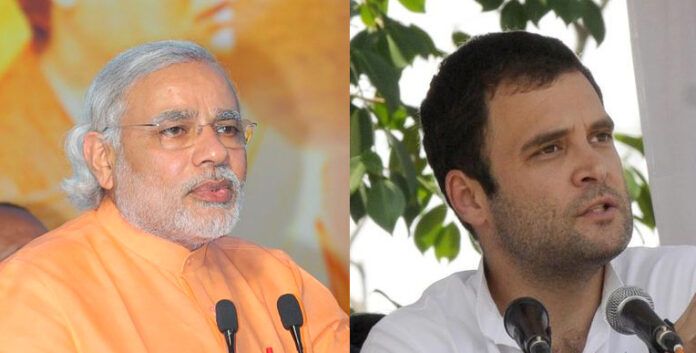Prime Minister Modi questions Rahul Gandhi’s silence on industrialists Adani and Ambani since the election declaration
Prime Minister Narendra Modi fired back at Rahul Gandhi’s allegations of crony capitalism, questioning the sudden silence of the Congress leader regarding industrialists Gautam Adani and Mukesh Ambani since the Lok Sabha elections began. Speaking at a rally in Telangana, PM Modi accused Gandhi of striking a deal and demanded answers.
“He has been saying the same thing for the last five years. After his Rafale allegations fell flat, he turned to Ambani and Adani. But since the elections began, he has stopped criticizing them. I want to ask him, how much money he has received. What deal has been made? There is something fishy. He owes the people an explanation,” PM Modi asserted.
Embed from Getty ImagesRahul Gandhi has repeatedly accused PM Modi’s government of favouring industrialists over marginalized sections of society.
PM Modi also highlighted the crumbling alliance between Congress and INDI after the third phase of elections, asserting BJP-led NDA’s path to victory in the Lok Sabha polls.
Furthermore, PM Modi accused Congress of damaging India’s economy, citing the downfall of traditional sectors like agriculture and textiles. He blamed Congress for leasing Hyderabad to AIMIM, led by Asaduddin Owaisi.
“If anyone has challenged AIMIM, it’s BJP. Congress and BRS (name not provided) are rattled by BJP’s challenge to AIMIM and are indirectly supporting it,” he added.
Taking a dig at Telangana Chief Minister Revanth Reddy, PM Modi alleged the existence of a ‘double R’ tax from Telangana to Delhi.
“There is talk of ‘double R’ (RR) tax from Telangana to Delhi. It’s reported that the collection from ‘RR’ tax exceeds the lifetime collection of the Telugu film ‘RRR’, which earned over ₹1000 crore in just a few days,” he quipped.
Analysis:
Political Impact: The exchange between Modi and Gandhi reflects ongoing political tensions, with each side attempting to discredit the other.
Social Reflection: The accusations of crony capitalism and economic mismanagement resonate with public concerns about corruption and inequality.
Psychological Aspect: Such confrontations may influence public perceptions of political leaders’ integrity and trustworthiness.
Sociological Angle: The remarks on economic policies and alliances shed light on broader societal issues concerning governance and accountability.
